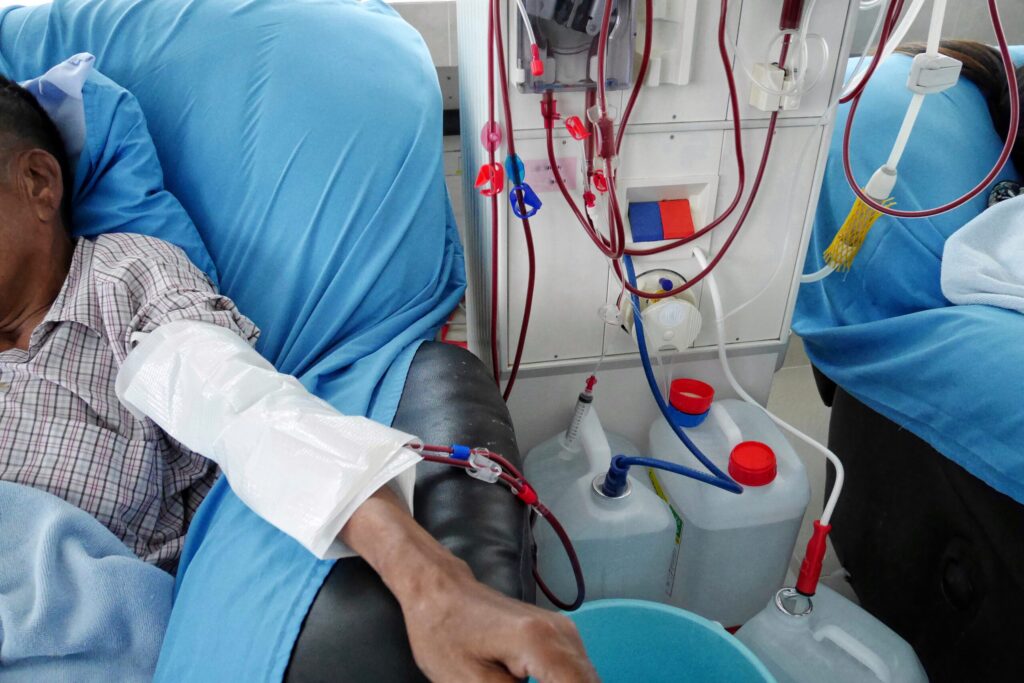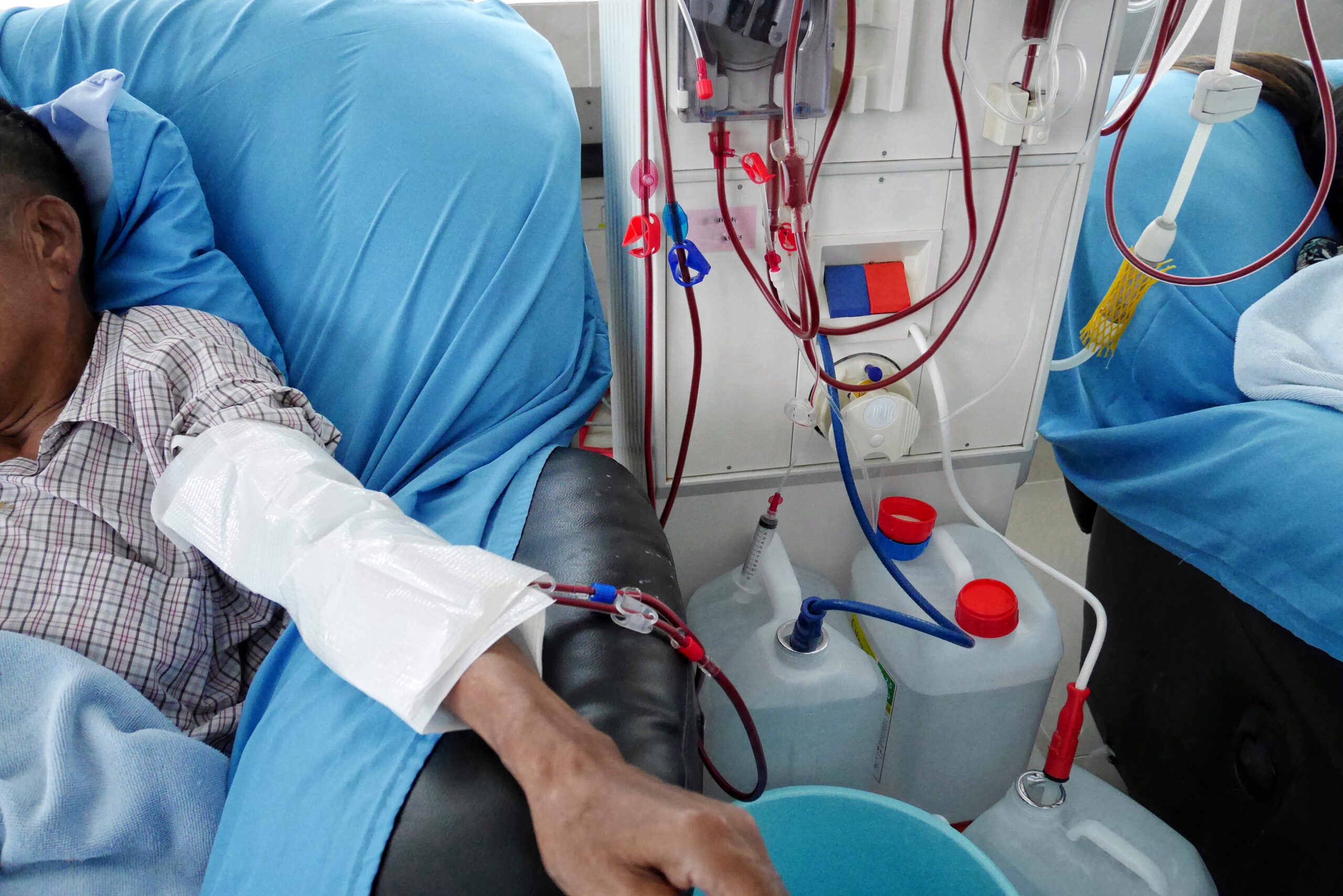Kidney dialysis is a life-sustaining medical procedure designed to replicate the essential functions of your kidneys when they are no longer able to perform effectively. Normally, your kidneys filter out excess water, salt, toxins, and other minerals that your body does not need from your bloodstream, helping to maintain a healthy balance of fluids and electrolytes. However, when your kidneys fail or experience severe damage, they lose their ability to carry out these critical tasks.
In such cases, kidney dialysis becomes necessary to help remove waste products and excess fluids from your blood, preventing the buildup of harmful substances that can cause serious health complications.
At Doral Health and Wellness, we provide expert in-center kidney dialysis services delivered by our highly trained medical team, who are dedicated to supporting your treatment and overall well-being. Our experienced nephrologists and urologists in East New York are committed to guiding you through every step of your dialysis journey, ensuring personalized care and comprehensive support tailored to your unique health needs. If you want to learn more about kidney dialysis or discuss your treatment options, we encourage you to consult with our specialists at Doral Health and Wellness for expert advice and compassionate care.
There Are Two Type of Kidney Dialysis
Hemodialysis
Hemodialysis is one of the most common and effective forms of kidney dialysis. It involves the use of a specialized machine called a dialyzer, which functions as an artificial kidney to filter and cleanse your blood externally. During the procedure, blood is drawn from your body, passed through the dialyzer where waste products, excess fluids, and toxins are removed, and then the purified blood is returned back to your body. This process helps maintain the vital balance of minerals and fluids when your kidneys are no longer able to do so effectively.
Hemodialysis treatments are usually scheduled multiple times per week, typically lasting several hours per session. The exact frequency and duration depend on your individual health needs and the recommendations of your healthcare provider.
Here are some important aspects you should know about hemodialysis as part of your kidney dialysis treatment plan:
Access Portal Creation: Hemodialysis requires a vascular access point, commonly called an access portal, which is surgically created by a vascular surgeon. This permanent access is typically connected to a major artery or vein and serves as the entry and exit point for your blood during dialysis sessions.
Temporary Access Options: For patients who require short-term kidney dialysis, a permanent access portal may not be necessary. Instead, a temporary catheter, which is a thin tube, is inserted usually in the neck to facilitate dialysis. It is crucial to maintain strict hygiene protocols with this catheter to prevent infections.
Location of Access Points: Permanent access portals are generally placed in the arms, often in the forearm or upper arm. Temporary catheters, on the other hand, are most commonly placed in the neck, specifically in the jugular vein, providing easy access for dialysis.
Dialysis Setting: Hemodialysis is typically performed in clinical settings such as hospitals, dedicated dialysis centers, or outpatient clinics equipped with the necessary machines and medical staff. These facilities provide a safe and controlled environment for your treatment, with continuous monitoring by healthcare professionals.
Understanding these components of hemodialysis as a kidney dialysis option can help you better prepare for your treatment journey and make informed decisions in collaboration with your medical team.
Peritoneal dialysis is a valuable alternative form of kidney dialysis that utilizes the natural filtering ability of your abdominal lining, known as the peritoneum. Unlike hemodialysis, which filters blood externally, peritoneal dialysis works inside your body by using the peritoneum as a semi-permeable membrane to remove waste products, excess fluids, and toxins from your bloodstream.
This process involves the surgical placement of a catheter into your abdomen, through which a sterile dialysis solution called dialysate is introduced. The dialysate absorbs the waste and extra fluid from your blood vessels lining the abdomen and is then drained out. This cycle of filling and draining is repeated regularly, allowing continuous cleansing of your blood.
Peritoneal dialysis offers several advantages, especially for those seeking greater flexibility and independence in their treatment. Here are key points you should know about peritoneal dialysis as an effective kidney dialysis option:
Surgical Placement of Catheter: A trained surgeon will perform a minimally invasive laparoscopic procedure to insert a catheter into the lining of your abdominal wall. This catheter acts as the access point for the dialysate fluid to enter and exit your abdomen.
Home-Based Treatment: One of the main benefits of peritoneal dialysis is that it can be administered safely and effectively in the comfort of your own home. This eliminates the need for frequent visits to a dialysis clinic and allows for a more convenient lifestyle.
Flexible Scheduling: Peritoneal dialysis can be done during the day in multiple exchanges or performed overnight while you sleep, known as automated peritoneal dialysis (APD). This flexibility allows many patients to continue working, studying, or managing daily activities without disruption.
Suitable for End-Stage Kidney Disease: If you have end-stage renal disease (ESRD) or stage 5 chronic kidney disease, where your kidneys no longer function adequately, your medical provider may recommend peritoneal dialysis as a treatment option. Your overall health, age, lifestyle, and personal preferences will be taken into account to determine the most suitable kidney dialysis method for you.
Empowerment Through Self-Care: Because peritoneal dialysis is often self-administered, it empowers patients to take an active role in managing their treatment and health, promoting greater independence.
Choosing the right form of kidney dialysis is essential for your well-being, and peritoneal dialysis offers a convenient and effective option for many patients. Discuss with your nephrologist or healthcare provider to understand if peritoneal dialysis fits your health needs and lifestyle.
Doral Health and Wellness provides an in-center dialysis managed by our highly trained medical team, we can work with you to create a dialysis regimen that will fit your medical needs and schedule.
If you have symptoms of having kidney problems, talk to your doctor so you can devise a proper treatment plan for your condition. Never take any symptoms of kidney problems for granted. It is better to have it checked early on, before it progresses. At Doral Health and Wellness Urology Center, our team of urologist and nephrologist will work with you in managing your disease and your quality of life. To schedule an appointment, please visit us at 1797 Pitkin Avenue, Brooklyn, New York 11212 or call 1-347-384-5690. You can also visit our website at https://doralhw.org/department/urology/.







